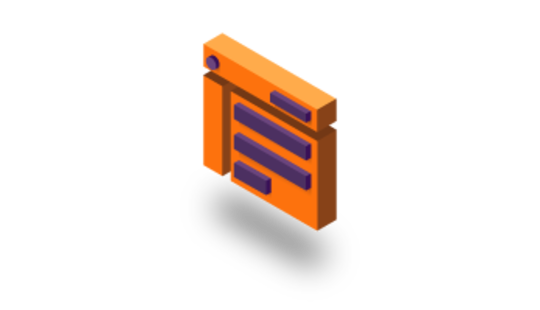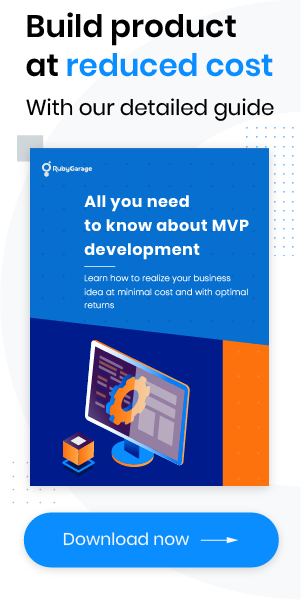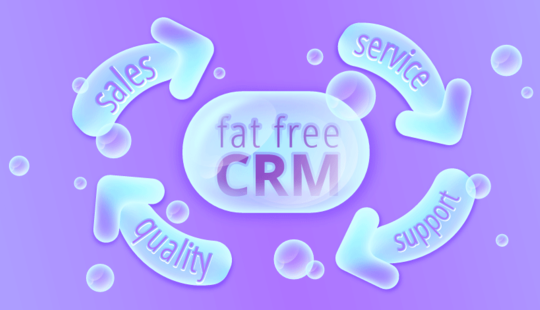-
Product Management
Software Testing
Technology Consulting
-
Multi-Vendor Marketplace
Online StoreCreate an online store with unique design and features at minimal cost using our MarketAge solutionCustom MarketplaceGet a unique, scalable, and cost-effective online marketplace with minimum time to marketTelemedicine SoftwareGet a cost-efficient, HIPAA-compliant telemedicine solution tailored to your facility's requirementsChat AppGet a customizable chat solution to connect users across multiple apps and platformsCustom Booking SystemImprove your business operations and expand to new markets with our appointment booking solutionVideo ConferencingAdjust our video conferencing solution for your business needsFor EnterpriseScale, automate, and improve business processes in your enterprise with our custom software solutionsFor StartupsTurn your startup ideas into viable, value-driven, and commercially successful software solutions -
-
- Case Studies
- Blog
Best CRM Software for Ecommerce Websites
Every business is about customers. A lot of effort is spent on attracting new customers and retaining existing ones.
The task of attracting new customers isn’t simple, on account of the fierce competition. However, there’s little doubt that the success of ecommerce companies depends on how well they interact with their customers.
Ecommerce businesses strive to reach out to their clients, learn their preferences, and determine their needs. That’s exactly what customer relationship management (CRM) systems help businesses do. In this article, we’re going to focus on the major CRM solutions for online stores and consider how to choose the best one for your business.
What is a CRM for Ecommerce?
Actually, any system for managing a company’s interactions with clients can be called a CRM system. CRMs come in handy for a variety of organizations, from healthcare institutions to logistics companies. Needless to say, the functionality required of a CRM solution depends on what kind of company it’s meant for.
As far as ecommerce is concerned, a CRM solution for ecommerce must be tailored specifically to sales. What does that mean? An ecommerce CRM system must provide a business with as much customer-related information as possible: shopping habits, interests, shipping preferences, and more. An efficient CRM solution for online stores must give a clear customer journey map so that you can come up with better marketing strategies and increase sales.
In simpler words, a CRM solution for ecommerce helps you gather, organize, store, and analyze information about your company’s customers. Let’s go over the major advantages that CRM systems provide for online retailers.
Benefits of Ecommerce CRM Solutions
Many business owners who aren’t eager to spend money on a CRM system ask: “What exactly can a CRM solution help me with?” There are plenty of time-consuming tasks that such software can facilitate.
- Generating leads through various channels.
- Providing on-time customer support and communication.
- Launching email marketing campaigns.
- Leveraging social media channels.
- Providing advanced analytics.
- Managing valuable customer-related data.
More advantages could be added to this list, but the gist is that a properly chosen customer relationship management solution is the most powerful weapon in the hands of salespeople.
So, if you’re ready to use some cutting-edge technology to boost your business, it’s high time to determine what you need in a CRM solution for ecommerce. Here’s an important tip we’d like to give to you: don’t rush for scores of features. The best ecommerce CRMs provide impressive functionality, but do you really need all of it? Consider the needs of your business and select the functions you really need. Remember that if some day you need additional functionality, you can always upgrade your subscription.
Ecommerce websites need a CRM solution that provides the following crucial functions:
#1 Gathering Meaningful Customer Data
The best way to gather useful information about customers is to require them to create accounts. When filling in a registration form, a person enters a lot of information that ecommerce websites can use (email address, phone number, and more). All this customer data is valuable to an ecommerce business, as it can be used to target each customer in the most efficient way.
#2 Re-Engaging Customers
Good CRM solutions provide businesses with lots of tools for encouraging their customers to make extra purchases: personal coupon codes, newsletters, loyalty points, and notifications about discounts. Using these promotion tools is certainly going to attract customers and increase sales.
#3 Email Marketing
According to the “Email Marketing Industry Census 2017” conducted by Econsultancy & Adestra, email marketing takes the lead in terms of the return on investment it provides. The best ecommerce CRM solutions allow online retailers to automate email marketing campaigns, tailoring them to each customer (in this way, customers receive individual treatment). For instance, if customers don’t finalize purchases, a CRM system can automatically send them emails reminding them of what’s in their shopping carts.
#4 Providing Informative Analytics
Reports and analytics are crucial for planning and strategy building, so CRM solutions for online sales must provide plenty of analytical information. Providing several basic indicators won’t be sufficient to analyze your company’s performance. An effective CRM system must be able to give deeper analytics about the most in-demand products and services, the most successful promotions, sales history, and more. The most advanced customer relationship management solutions even provide businesses with predictive analytics that facilitate planning and sales forecasting.
#5 Customer Support
Many businesses underestimate the importance of customer support, which is a grave mistake. According to an article by Forbes, businesses lose more than $60 billion per year due to insufficient customer support.
In ecommerce business, your company's reputation is its supreme value. Customers mustn’t feel left behind. To keep them engaged, the best CRM solutions for online stores offer powerful toolkits for interacting with your customers. For example, chatbots allow you to greatly improve customer service. Read this article on our blog to find out why chatbots are a real advantage for CRMs.
Once a problem has been reported, you’ll be able to assign priority to it, fix it, and attract the customer back to your online store. For bigger companies, a CRM for ecommerce will streamline the workflow of customer support departments.
When customers’ questions are answered quickly, customers will feel that your company cares about them. Therefore, brand awareness and visibility will grow, boosting your ecommerce website’s profits.
#6 Social Media Integration
Social media plays an increasingly important role worldwide. According to figures provided by Statista, the number of social media users on our planet is expected to exceed 2.5 billion in 2017. Social media is a huge marketplace for online retailers who are already leveraging social media. An article by Business Insider indicates that in 2014, the top 500 retailers made $3.3 billion from social shopping, and their income from this revenue channel has most certainly grown by today.
Therefore, adding social media integration to a CRM system is crucial for any ecommerce company. Social media can bring thousands of new leads, helping your online store to generate bigger profits. Another important aspect related to social media is that customers are more likely to make a purchase after reading a positive review.
The Best Available Ecommerce Customer Relationship Management Solutions
The CRM software market is huge: according to an article by Forbes, in 2015 the market was worth $26.3 billion, whereas the projected sales volume for 2017 is expected to expand to around $40 billion. There are dozens of vendors offering customer relationship management solutions for businesses, so making the right decision is quite challenging. For this article, we’ve selected the top ecommerce CRM software providers.

#1 Salesforce

This is the world’s largest CRM software provider: in its 2015 report, Gartner put Salesforce at the top of its list of the biggest CRM vendors, with a market share of nearly 20%. Salesforce offers an efficient out-of-the-box CRM for ecommerce called SalesforceIQ, which is tailored for small- and medium-sized businesses. Plans start from $25/month per user, and several other options with more functionality are available. The SalesforceIQ ecommerce CRM offers several deployment options: cloud, SaaS, and web, plus support for mobile devices (iOS and Android native apps).
Notable Features
If your business grows and SalesforceIQ no longer provides you with sufficient functionality, you can quickly upgrade to Salesforce’s Sales Cloud CRM with Einstein artificial intelligence. Einstein is a helpful tool that analyzes all the data stored in your CRM and provides sales representatives with extra opportunities, such as predictive intelligence, for example.
#2 Zoho

Zoho offers an affordable and functional CRM for ecommerce companies that wish to build strong relationships with their customers. Even a standard plan (available at $15/month per user) offers sales forecasting, mass emailing, reports, and other important features. Zoho supports the most convenient deployment options, such as cloud and mobile (iOS and Android).
Notable Features
Starting from the Enterprise plan, the Zoho ecommerce CRM solution offers the benefits of Zoho’s cutting-edge Zia artificial intelligence. Zia uses state-of-the-art machine learning algorithms to boost your business.
#3 Act!

Act is an affordable and helpful ecommerce customer relationship management solution for small businesses and individuals. The tool retains all of the most important customer-related data, allows you to group your clients in a database, launch targeted email marketing campaigns, and more.The starting plan, Act Premium, costs $25/month per user. Act Ecommerce CRM software offers the following deployment options: Windows, web, and mobile devices (iOS and Android).
Notable Features
If you happen to go offline, the Act CRM will synchronize your recent changes as soon as you’re connected to the internet again. This way you can work from literally anywhere.
#4 Microsoft Dynamics

Microsoft Dynamics is a series of smart solutions for sales, customer service, finance, marketing, and more. The solution for sales (ecommerce website management falls into this category) is available from $95/user per month. This CRM solution for online stores allows you to leverage predictive intelligence in order to increase sales and target your customers with the most effective campaigns. This ecommerce CRM software can be installed on Windows computers and supports deployment to cloud, SaaS, and web.
Notable Features
The Microsoft Dynamics suite allows you to add extra apps according to the needs of your business. Apps are available for collaboration, marketing, human resources, and more.
#5 HubSpot

The good thing about HubSpot is that this CRM ecommerce software is free for individual sales representatives. HubSpot’s ecommerce CRM software is a simple way to keep all your customers in a single easy-to-access database. Also, the CRM automatically logs all interactions with customers. More functionality is available in HubSpot Sales Pro (starting from $50/month). Deployment options include cloud, SaaS, web, and mobile (iOS and Android).
Notable Features
HubSpot allows you to turn repetitive emails into customizable templates. The CRM will show you which templates work and which don’t so that you can target your customers as efficiently as possible.
Moreover, starting from HubSpot Sales Pro, you can contact your leads by phone (2,000 min/month); all calls can be recorded so that you always know exactly what you discussed.
#6 SAP

In 2015, the above-mentioned Gartner report named SAP the second-largest CRM provider in the world and assessed its market share at 10.2%. Needless to say, SAP has a lot to offer to any business, from small online retailers to large enterprises. The SAP Hybris Cloud for Sales is a helpful CRM that allows small businesses to better understand their customers and help them move through the buying process. SAP Hybris Cloud for Sales offers advanced reports and dashboards that provide ecommerce businesses with plenty of information and predictive analytics. This CRM for ecommerce can be accessed from mobile devices (iPhones, iPads, Android devices, and even Apple Watch). The starting price for SAP Hybris Cloud for Sales is $23/month per user.
Notable Features
SAP Hybris Cloud for Sales ecommerce CRM offers sophisticated customer intelligence: you can scan business cards via your mobile device and the CRM will add a new lead to your customer database.
#7 Maximizer

The Maximizer CRM is among the best solutions for small- and medium-sized ecommerce companies that wish to reach out to their customers in the most effective way. Starting at $60/month per user, Maximizer CRM provides an all-in-one ecommerce tool with all the necessary modules for sales, marketing, and customer support. This CRM for ecommerce can be deployed in the cloud or on your own server, and can be accessed from Android and iOS devices.
Notable Features
Growing ecommerce companies can benefit from using the Wealth Manager CRM package from Maximizer. Apart from all the functions of a standard Maximizer CRM, this solution offers incredible financial and investment advisor capabilities.
#8 ReadyCloud

The ReadyCloud CRM is a great choice for small ecommerce companies focused on turning potential customers into loyal customers. With a starting price of $19/month per user, ReadyCloud offers a lot of must-have functions for online stores, such as contact and order management, advanced reporting, and an easy-to-use calendar. ReadyCloud easily integrates with the most popular ecommerce services (marketplaces, shopping carts, etc.), including Shopify, Magento, and BigCommerce.
Notable Features
You can maximize the efficiency of your ecommerce website by automating shipping and returns. For this purpose, ReadyCloud can be seamlessly integrated with ReadyShipper and ReadyReturns. ReadyShipper helps you quickly ship orders to your customers, while ReadyReturns streamlines product returns and ensures quality customer service.
Best CRM for Ecommerce Not Found?
It’s quite likely that the offers on the market don’t fully correspond to the needs of your small ecommerce website. Probably, some CRM solutions offer many unnecessary functions, whereas others offer too few. If you can’t find precisely what you’re looking for, there’s another option: building a custom basic ecommerce CRM that will be fully tailored to your business.
Though this option might sound difficult, creating a CRM for retail isn’t that hard. If you’re wondering how much it costs and what functionality a custom solution can have, read this informative article on our blog. The final choice is yours, since you’re the one who knows your business inside and out!










